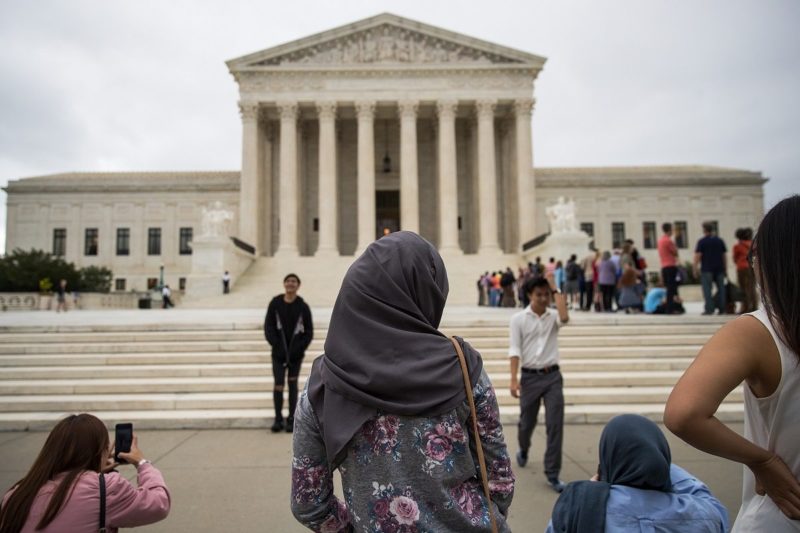Gavel Drop: U.S. Supreme Court Dispenses With One Muslim Ban Case
It's October, so we're playing the WWSCD game: What will the U.S. Supreme Court do next?

Welcome to Gavel Drop, our roundup of legal news, headlines, and head-shaking moments in the courts.
Amy Howe writes in SCOTUSblog that the U.S. Supreme Court last week sent Trump v. International Refugee Assistance Project, one of the lawsuits stemming from Trump’s second Muslim ban attempt, back to the Fourth Circuit Court of Appeals with instructions to dismiss it as moot. In other words, that case is dead. The other case, Trump v. Hawaii, will probably remain active until the end of the month, when the clause that plaintiffs are challenging expires. The high court is expected to dismiss it then.
Meanwhile, civil rights advocates are suing the Trump administration over its third iteration of the travel ban. So the legal fight over these orders is far from over.
Talk about another long battle that’s ahead: The Trump administration has asked a federal district court to dismiss a legal challenge to its proposed ban of transgender people in the military.
Late on Friday, the Eighth Circuit Court of Appeals blocked Arkansas from enforcing its restrictions on medication abortion. Planned Parenthood is waiting to see if the U.S. Supreme Court will step into the case.
The Alliance Defending Freedom, a group of conservative lawyers whose bread and butter is championing regressive causes, went to federal court in September to defend their claim that fake clinics or “crisis pregnancy centers” (CPCs) in Hawaii should be permitted to lie to pregnant people. A new Hawaii law requires that anti-abortion clinics inform pregnant people of the availability of comprehensive family planning services. The CPCs are complaining that not lying to pregnant people violates their right to free speech and religion.
Celia Llopis-Jepsen writes for KCUR radio that the Kansas Supreme Court ruled unanimously last week that the state is underfunding its public schools. The court said that the funding for Kansas public schools is unconstitutionally low and is unfair to poor school districts that consistently get the short end of the stick in terms of resources.
A state appeals court in Missouri has ruled in favor of an anonymous member of the Satanic Temple (yes, that’s an actual religious organization) who filed a lawsuit challenging Missouri’s 72-hour waiting period for abortion on religious grounds. According to the Satanic Temple’s website, abortion restrictions like Missouri’s violate the group’s religious belief in the inviolability of one’s body. The organization also believes that “we should take care never to distort scientific facts to fit our beliefs.” The appeals court said that the lawsuit “raises real and substantial constitutional claims,” setting the stage for the Missouri Supreme Court to review the law.
In a lawsuit spearheaded by the Center for Reproductive Rights, an Oklahoma judge has ruled that a 2014 state law restricting access to medication abortion is unconstitutional. The law banned “off-label” use of the medication used for abortion, even though medical consensus does not require strict adherence to the FDA label.
Jamila Taylor of the Center for American Progress details five ways immigration justice intersects with reproductive justice. I would say that immigration falls under the umbrella of reproductive justice, but potayto/potahto.
A Pennsylvania appeals court said a lower court judge was correct in denying parole to a pregnant person with a substance use disorder for the safety of her developing pregnancy.
